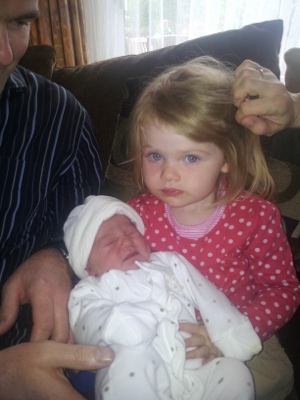Disclaimer! I do not and have never claimed to be a breastfeeding expert. I am simply sharing information based on my experiences. My sister is a midwife so we have had a few conversations on the subject!
I am constantly asked for tips when mums feel the time has come to move on from breastfeeding.
I am not in any way anti-breastfeeding but understand that there may come a time when, for whatever reason, you will want to stop breastfeeding your baby. Some women continue for many months, even years, while others know at what point they would like to wean their baby from the breast. You do not need to stop breastfeeding when your baby has solid food introduced to his diet and it is worth considering that your baby will need either breast or formula milk until he is 12 months old when making this decision.
However, you may need to return to work or have other practical, emotional or physical needs that require you to wean your baby off the breast.
Express In order to minimise any physical discomfort you feel at this time, you should express a little milk. However, do not express more than you need to feel comfortable, as your breasts will keep making the same amount of milk. You should try to take a little off though as otherwise your breasts could become engorged and possibly develop mastitis.
Pick the right moment. As with any change, it is not a great idea to start weaning your baby when he is experiencing an upset routine. This might be as stressful as a move to a new house or as simple and natural, as teething. Either way, these occasions are stressful even for small babies and getting rid of the comfort that is breastfeeding, is only going to make your job harder at this time.
Take one step at a time. Unless you have been instructed to stop breastfeeding quickly (perhaps prior to being admitted to hospital), then you should make this experience a process rather than an earth-shattering event. Your baby will be able to cope with this change if it is approached in the right way. Cut down on the breastfeeds gradually. For example, at the beginning, pick one feed to drop (preferably one that doesn’t seem very important in an emotional sense to your child) and do without this one for a week, before dropping another.
Ask for help. You will need the support of your partner at this time. If your partner has been giving your baby bottles (perhaps of your expressed milk, or of formula), then chances are that weaning will be less of an ordeal for everyone involved. He will already have helped to establish to your baby that it is not only you that is able to provide feeds. To stop giving a bedtime feed, it might be an idea to ask your partner or relative to take over bedtimes for a while. (lucky you!)
The art of distraction. You will already be a skilled at baby-focused distraction techniques and this will be the ultimate test of your skills. Get out, get walking, go to the park, go swimming, in short, do whatever it takes to occupy your baby’s time. No time to think about breastfeeding can only be a good thing. Sitting down with your baby is an open invitation for a quick guzzle!.
Above all, make sure that your baby is party to lots of hugs and kisses and is made to feel very loved. This is a big change for him and he may feel slightly insecure or vulnerable at this time. If you are finding this process of weaning your baby from the breast, do not hesitate to seek support. There are many wonderful breastfeeding support groups around.
A few Tips
- Babies become self-aware and quite discerning from around 2 months
- Offer the bottle on your knee and feed with the child facing outwards
- Don’t wait till your child is hungry – new experiences are handled better when your child is in good form and well rested
- Let your little one play with an empty bottle in order to get used to it
- Offer it during a dream feed
- Perhaps have the bottle slightly warmed
- Your childs mouth is wide open when they are feeding from the breast so try to fill their mouth with the teet as much as you can
Hope you find this useful!
Niamh

